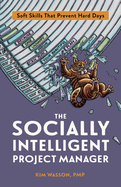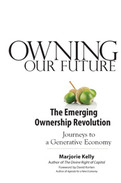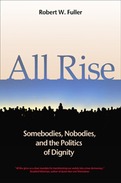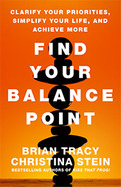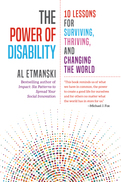High-performing teams don't happen by magic. You need processes that are designed in a socially intelligent way if your team is going to overcome the modern world's tough challenges with coordination. To be a star project manager, you have to communicate with people in their individual learning styles, provide accountability in ways that won't be demotivating, and run meetings and minutes that people won't tune out. Your processes must be constructed in ways that respect the complex realities of social dynamics step by step.
You have to know your team before you can motivate them, and you have to motivate them before you can manage them. In this book are foolproof techniques to make sure your team connects with you, each other, and everyone they need to get the job done. After all, a team should be more than the sum of its parts—and it's up to the project manager to provide the glue that holds it all together.
2012
- Offers a bold solution to our recurring economic crises: innovative new forms of institutional ownership
- Takes the reader on a global journey to meet the people and organizations that are pioneering new forms of life-sustaining ownership
- From the author of the classic The Divine Right of Capital
- Click here for the press release
Looking around at the wreckage left in the wake of the world economys latest crisis, veteran business journalist Marjorie Kelly noticed that some institutions were left relatively unscathed. What did they have in common? The key, Kelly realized, is seemingly obscure: ownership. Prominent among the survivors were organizations that combined the flexibility of traditional private ownership with a focus on the common good.
As long as businesses are set up to focus exclusively on maximizing quarterly returns for a limited group of individuals, the economy will be plagued by destructive boom-bust cycles. But now people are experimenting with new forms of ownership. We are in the midst of the most creative period of economic innovation since the dawn of the Industrial Revolution. Kelly calls these new forms generative: aimed at creating the conditions for life for many generations to come. They are in contrast to the dominant ownership designs of today, which can be called extractive: aimed at extracting short-term financial wealth.
To understand these emerging ownership alternatives, Kelly reports from all over the world, visiting a community-owned wind facility in Massachusetts, a lobster cooperative in Maine, a multibillion-dollar employee-owned department-store chain in London, a foundation-owned pharmaceutical in Denmark, a farmer-owned dairy in Wisconsin, and other places where an economy that works for all is being built.
This is not a moment for old solutions and tired approaches. As we enter a new era of limits, alternative ownership designs can help it become an era of fairness, sustainability, and community.
2006
- By the author of the bestselling Somebodies and Nobodies: Overcoming the Abuse of Rank
- Argues that rankism--abuse of the power that comes with superior rank--does serious damage to our private relationships and public institutions
- Details how to design social institutions that overcome rankism and protect human dignity
- Learn more at www.BreakingRanks.net
Because we all have too much to do, it feels like our lives are out of balance. But Brian Tracy and Christina Stein argue that imbalance results not so much from doing too much but from doing too much of the wrong things. They provide a process that enables you to sort out what is most important to you from among the many activities you could focus on. When you can efficiently identify and accomplish what really matters to you, you've found your balance point.
This book reveals that people with disabilities are the invisible force that has shaped history. They have been instrumental in the growth of freedom and birth of democracy. They have produced heavenly music and exquisite works of art. They have unveiled the scientific secrets of the universe. They are among our most popular comedians, poets, and storytellers. And at 1.2 billion, they are also the largest minority group in the world.
Al Etmanski offers ten lessons we can all learn from people with disabilities, illustrated with short, funny, inspiring, and thought-provoking stories of one hundred individuals from twenty countries. Some are familiar, like Michael J. Fox, Greta Thunberg, Stephen Hawking, Helen Keller, Stevie Wonder, and Temple Grandin. Others deserve to be, like Evelyn Glennie, a virtuoso percussionist who is deaf—her mission is to teach the world to listen to improve communication and social cohesion. Or Aaron Philip, who has revolutionized the runway as the first disabled, trans woman of color to become a professional model. The time has come to recognize people with disabilities for who they really are: authoritative sources on creativity, love, sexuality, resistance, dealing with adversity, and living a good life.



